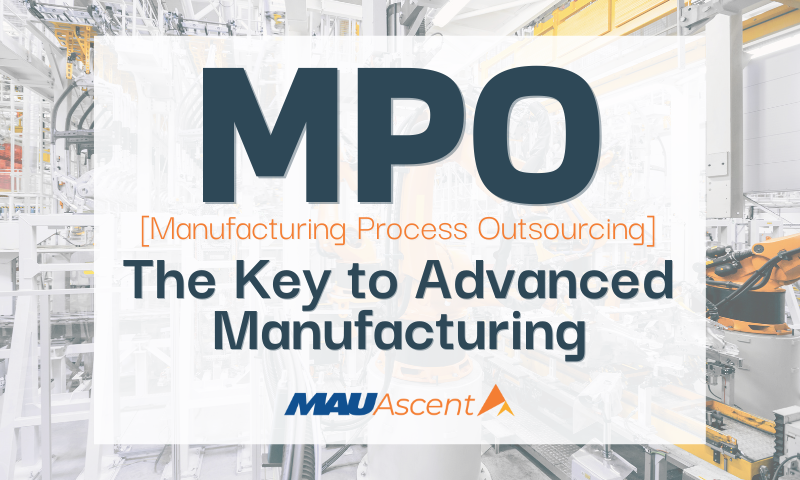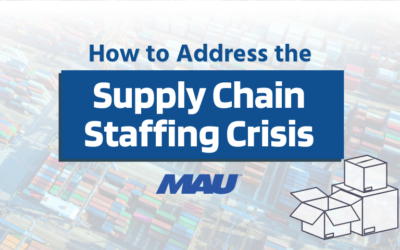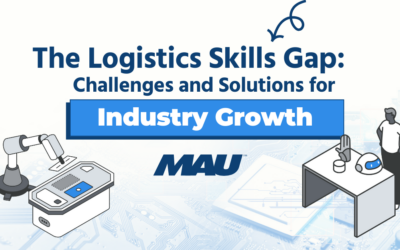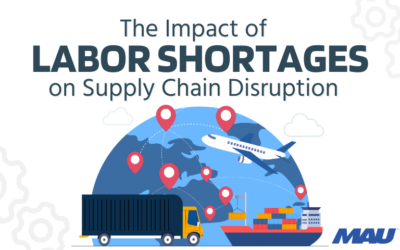In the fast-paced world of manufacturing, where technological advancements and global competitiveness are relentless, embracing outsourcing strategies is not just advantageous – it’s essential. Advanced manufacturing – characterized by the use of cutting-edge technology and highly efficient processes – is the standout approach distinguishing leaders from followers in this highly competitive industry.
Solutions from the past aren’t likely to work because the skills manufacturers need to develop, manage, and maintain automated equipment and digital processes have changed profoundly. McKinsey research projects that by 2030, the share of physical and manual tasks in the overall economy will have fallen by about 27 percent since 2016, replaced by greatly increased demand for technological and cognitive skills.
Staying ahead in advanced manufacturing necessitates a vision and the pragmatic recognition of the transformative power of outsourcing. For manufacturing and supply chain leaders, this means recognizing that to thrive is to strategically embracing external expertise.
Defining Advanced Manufacturing
The term “advanced manufacturing” has become increasingly common in today’s fast-paced technological landscape. So, what exactly does it mean? Put simply, advanced manufacturing can be defined as the integration of innovative technology and cutting-edge processes to enhance the efficiency, productivity, and quality of manufacturing.
At its core, advanced manufacturing aims to optimize production, minimize waste, and ultimately drive economic growth. Key components of advanced manufacturing include automation, data analytics, artificial intelligence, and additive manufacturing, among others. By leveraging these tools and techniques, businesses can stay ahead of the curve and position themselves for long-term success in an ever-evolving industry.
Benefits of MPO in Advanced Manufacturing
MPO in the realm of advanced manufacturing offers numerous opportunities for growth and optimization. It goes beyond being just a strategy; it serves as an engine for innovation and development.
One of the primary advantages is the immediate access to specialized expertise and technologies, which may be costly or time-consuming to develop in-house. By tapping into a global pool of knowledge and innovation, manufacturers can quickly establish leading positions within their markets.
Cost savings and efficiency improvements are crucial for manufacturing success. MPO transforms fixed costs into variable costs, freeing up capital for investment in other areas of the organization. This allows for a more agile response to market demands and changes. Moreover, it helps reduce inefficiencies and lower overhead costs, making operations leaner and more competitive.
Flexibility and scalability are essential in the dynamic landscape of manufacturing. With outsourcing partners, businesses can easily scale up or down, seamlessly adapting to market needs and customer orders.
By entrusting non-core activities to external specialists, firms can focus their resources on what they do best: innovating and enhancing their core product offerings. This focused approach leads to superior products, better market fit, and stronger customer relationships.
Build Your Workforce with Recruitment Process Outsourcing (RPO)
Outsourcing recruitment processes is a game-changer in manufacturing. Building and maintaining a robust workforce has become increasingly challenging in the current talent-driven market. Outsourcing recruitment processes to experts allows manufacturers to tap into specialized networks and resources, reducing time-to-fill and ensuring better quality of hires.
With RPO for manufacturing, companies can gain access to a team of subject matter experts who possess in-depth knowledge and experience in the manufacturing industry. These professionals understand the specific skillsets, qualifications, and cultural fit necessary for successful hires in this field.
Moreover, RPO can provide companies with valuable insights into market trends and salary expectations to help them develop competitive hiring strategies. This expertise adds tremendous value to businesses looking to stay ahead in advanced manufacturing.
Optimize Your Process Management
Even the most intricate elements of manufacturing can be significantly enhanced through strategic MPO. This extends to labor and the entire process and complete project management, ensuring that every link in the supply chain is meticulously optimized for utmost efficiency and output.
By leveraging process management outsourcing, manufacturers can unlock many benefits, including streamlined processes, improved resource allocation, and substantial cost reductions. This, in turn, empowers them to respond to market demands and changes with unparalleled agility and adaptability, leading to a competitive edge in the industry.
With the added advantage of external expertise and specialized knowledge, manufacturers can achieve greater precision, innovation, and scalability in their operations, propelling them toward sustained success and growth.
It’s Time to Take The First Steps
The manufacturing industry is poised for a revolution with the rise of advanced technologies. Manufacturing processes are becoming more streamlined and efficient with the increasing integration of automation through Artificial Intelligence (AI) and the Internet of Things (IoT). This leads to better product quality, improved productivity, and cost savings.
As technology advances, the future outlook for the manufacturing industry is promising. With the use of machine learning and data analytics, manufacturers can optimize their processes to improve efficiency further and reduce waste. It is crucial for manufacturers to stay up-to-date with the latest technological trends to stay ahead of the competition. Investing in advanced technologies will be key in pushing the manufacturing industry forward into the future.
Outsourcing isn’t just an option; it’s an imperative facet of an advanced manufacturing strategy. With the right approach, it’s a conduit to a more agile, innovative, and competitive manufacturing operation. Let us embrace this paradigm shift and the innumerable opportunities it brings to those ready to harness its power.






